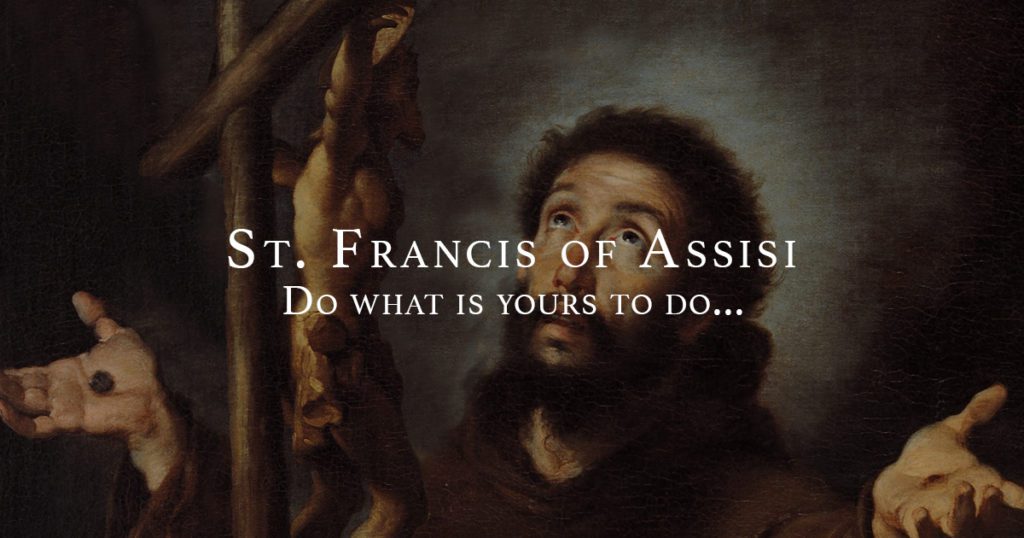
“I have done what is mine to do. May Christ now teach you what is yours to do.”
– St. Francis of Assisi
These words St. Francis said on his deathbed are key to understanding his approach to discernment. What did he mean? First, what he did not mean is, “Hey, future disciples, I have upheld my part of the bargain, now it’s time for you to hold up your end of the deal.” His meaning was far from this! To understand Francis’s invitation, one must realize that his words are steeped in the profound humility of how he lived. St. Francis left behind wealth and status and cast himself among the lepers and outcasts.
He called upon his fellow brothers to be “lesser ones” who should always be “subject to all.” For Francis, the work we are called to do is never about calling attention to ourselves, but simply doing what God has called us to do—nothing more, nothing less.
In our modern day, St. Mother Theresa beautifully exemplified this call. She didn’t call attention to herself and try to be someone she was not. She simply served those “lesser ones,” as a lesser one herself, and did what was hers to do.
But there is more to this statement than Francis’s humility. This statement also speaks to the unique and particular gifts we have each been given to serve God in a way that no other person can duplicate. John Duns Scotus, a Franciscan who lived 50 years after St. Francis, called this quality our “this-ness,” his name for our unique essence that delineates us from every other thing God has created. God calls us to each discover our “this-ness”—that is, to become exactly the creation we were made to be.
We cannot serve God as God intended through trying to be someone else. One can only give glory to God and carry out God’s will through being “you.” We each have a God-given set of gifts to offer the world that God has given to no one else. It is through discovering and these gifts—our this-ness—and offering them as gift to the world that each of us does “what is yours to do.”
STORY-BASED QUESTIONS
What are your greatest gifts? (In considering your gifts, look to those things which bring you greatest joy—usually, your gifts coincide with what brings you joy.)
How do your gifts intersect with what the world most needs at this time?
